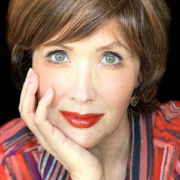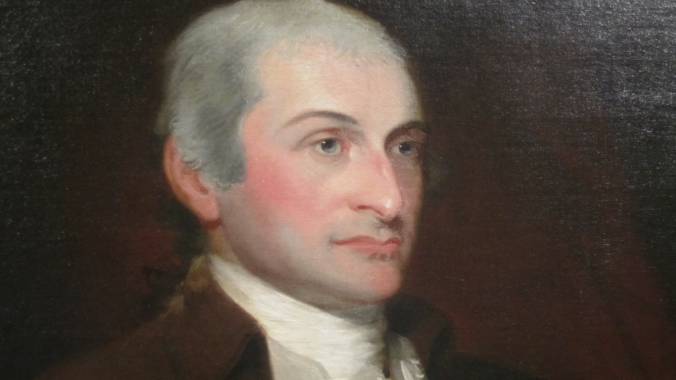Principle of Self-Governing
 Essay Read by Constituting America Founder, Actress Janine Turner
Essay Read by Constituting America Founder, Actress Janine Turner
In The Abolition of Man, C.S. Lewis argues that education exists to inspire students’ affections so that they love good and hate evil. Such, the Western tradition has held time out of mind, is the route to being able to perceive the choices which lead one towards a happy life, and the choices which lead away from such an end. Lewis stands in agreement with both Aristotle and Kierkegaard in affirming that as rational creatures, human beings have the ability to make real choices.
It is this capacity for rational choice that makes the founding principle of “self-government” so vital for the flourishing of the American republic. James Madison famously wrote that the regime the founders and framers envisioned could only be maintained by a “moral people,” meaning that the American system of governance depends upon the majority of citizens practicing customs which train the heart and hands to love what is good. The founders were not naive; they knew the evil that resides in the human heart. And yet, their federalist system envisioned a people whose religious allegiance and moral training enabled them to choose right over wrong, good over evil, beneficial over harmful, in most cases. John Jay made the connection between a self-governing people choosing virtue and maintaining their freedom clear:
Let us also be mindful that the cause of freedom greatly depends on the use we make of the singular opportunities we enjoy of governing ourselves wisely; for if the event should prove, that the people of this country either cannot or will not govern themselves, who will hereafter be advocates for systems, which however charming in theory and prospect, are not reducible to practice. If the people of our nation, instead of consenting to be governed by laws of their own making, and rulers of their own choosing, should let licentiousness, disorder, and confusion reign over them, the minds of men every where, will insensibly become alienated from republican forms, and prepared to prefer and acquiesce in Governments, which, though less friendly to liberty, afford more peace and security…[1]
Such self-governance is necessary for the flourishing of a legal system within which the people can, through various hierarchical structures, vote to construct their society as they see fit. We have that capacity. Given this reality, the importance of self-government should be clear. We need citizens to value rule of law, to see and approve of the connection between natural law and civil law, to perceive the necessary goods of property rights and constitutional order for the American way of life to continue. Different regimes exist; it takes but a momentary survey of 20th century history to see fascism, communism, and dictatorship as counter examples of what is possible. How then do we inculcate the value of self-governance in the rising generation?
Self-governance becomes a question of education. And this is where the classical education renewal movement holds the seeds of restoring health and vitality to the American way of life. I propose three ways the classical education passes on the principle of self-governance to students. First, we teach students that humans exist as embodied souls, and as such hold intrinsic worth. As rational creatures of infinite value, their choices matter. But with those choices comes responsibility. Second, school is a place for students to learn that actions, words, and ideas have consequences. Choosing to study diligently throughout the term results in academic progress and completion of a course. Engaging in physical violence results in expulsion. Being a faithful, diligent student who participates in the great tradition leads to forming strong relationships with teachers (creating the teachers’ ability to write recommendations). Third, classical schools teach students to see the past as an inheritance they must receive, steward, and pass on. In so doing, students take ownership of the ideas, values, concepts, and skills that previous generations have developed. They then exercise those ideas to build a fulfilling life capable of reaching happiness. Through these concepts, long abandoned by mainstream education, the classical renewal movement offers hope to an America in need of rediscovering her first principles.
A self-governing citizenship is the only way to avoid Thrasymachus’s accusation in The Republic that “Justice is nothing but the will of the stronger.” If a people will not govern themselves, they will eventually cause their own destruction. But such an end is not inevitable. In families, in churches, in schools, and in all the variations of Edmund Burke’s “little platoons” which make up our society, the principle of self-governance is still taught, practiced, and exemplified. So long as we live aware of the value of our choices, we preserve our freedom. In losing that awareness, in living as if reality were consequence-free, we exchange freedom for bondage. Someone will rule over us, and for that to be ourselves, we must recover self-governance as a way of life.
 Josh Herring is Professor of Classical Education at Thales College, where he oversees the development of the Classical Education teacher training program. He also serves as Director of Debate for the Thales Debate Network, and hosts The Optimistic Curmudgeon podcast. He tweets at @TheOptimisticC3.
Josh Herring is Professor of Classical Education at Thales College, where he oversees the development of the Classical Education teacher training program. He also serves as Director of Debate for the Thales Debate Network, and hosts The Optimistic Curmudgeon podcast. He tweets at @TheOptimisticC3.
[1] John Jay. “Citizen of New York: An Address to the People of the State of New York” (April 15, 1788).
Click here for First Principles of the American Founding 90-Day Study Schedule.
Click here to receive our Daily 90-Day Study Essay emailed directly to your inbox.




I love to read the thoughts of people long past. Regardless of the author, there is always something to learn that can be passed along. My children are in industry and have been there and progressed for a while. My grandchildren are currently my primary concern as they are in early adulthood and still require tutoring as they progress in their fields of learning. The one whose thoughts allude me is my grand daughter and I would like to know what she thinks of different situations but she is quiet as she has always been and I think of a higher intelligence as the boys of which I have three. Anyway enough of that .
I remain
Carroll “Gene” Raley